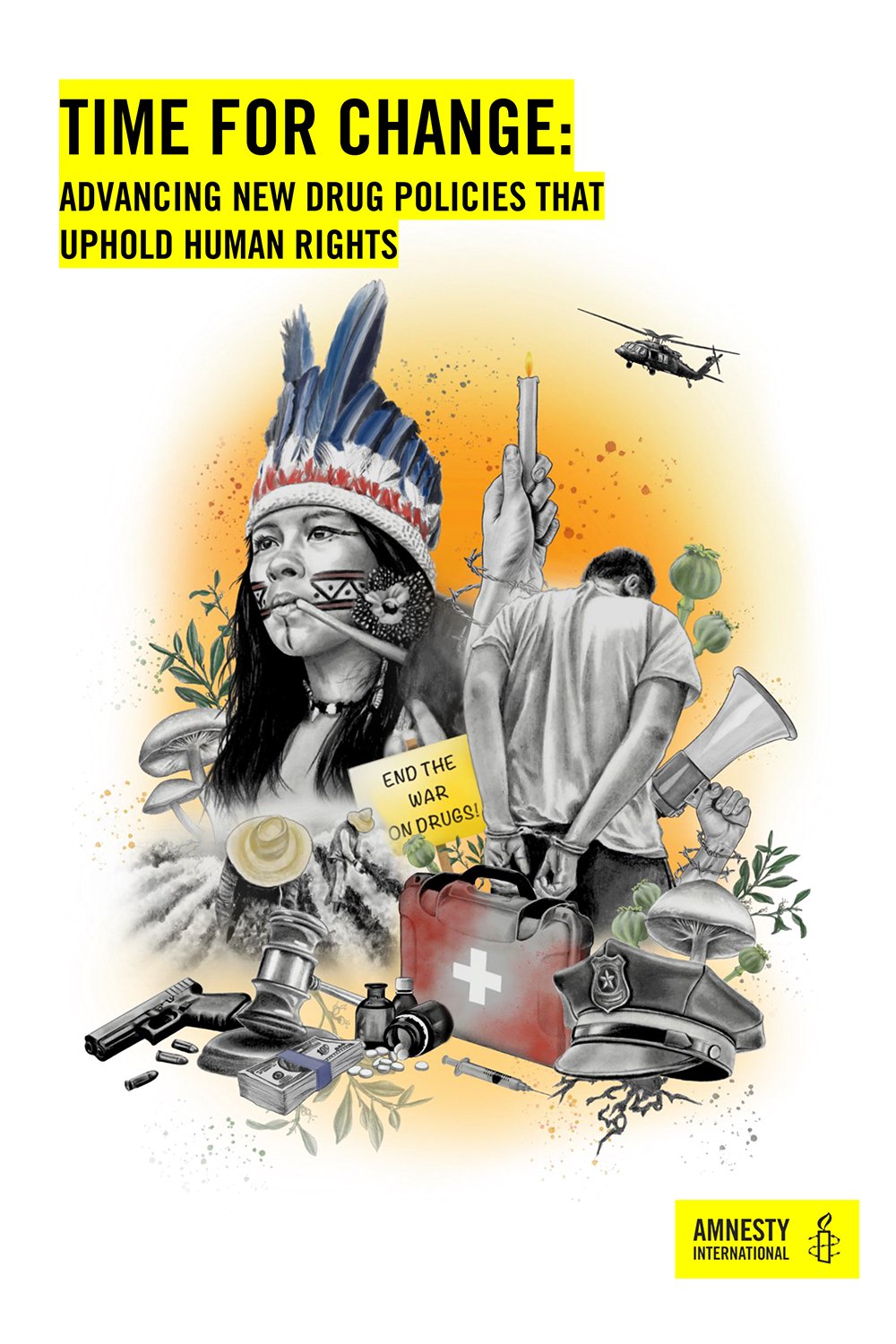There is no doubt that the “war on drugs” has failed globally. Not only has this anti-drug crusade failed to achieve its own questionable objective to eradicate drugs, but the notion of prohibition and its enforcement has facilitated widespread human rights abuses and violence across the world. Over the years, Amnesty International and many other civil society organizations and international human rights mechanisms have documented the widespread human rights violations occurring as a direct consequence of the implementation of punitive drug policies.
These include police abuses, discrimination, extrajudicial executions, torture and other ill-treatment, arbitrary detentions, and violations of economic, social and cultural rights, including of the right to health. In some cases, abuses committed in the name of drug control have amounted to crimes against humanity. Certainly, drugs involve risks depending on how they are used and by whom. But the way in which the international community has responded over recent decades to the risks and challenges posed by drugs has often done more harm than good. What was supposed to be an effort to protect public health has instead left a legacy of violence, disease, mass incarceration, suffering and abuse. Moreover, the use and availability of drugs has increased over the years alongside the risks and harms of using drugs, while violence associated with illicit markets has been exacerbated.1 It is precisely because of the risks associated with drugs that governments need to take control and regulate how these substances are produced, sold and used to manage and minimize their potential harms.
States should therefore aim to bring currently illicit drugs under government control through responsible regulations and evidence-based prevention, harm reduction and treatment services rather than pursuing failed policies based on prohibition and criminalization that facilitate human rights abuses and contribute to the existence of unregulated markets that are inherently prone to violence and detrimental to public health. Across the world, many jurisdictions are moving away from an approach dominated by criminal justice responses with important shifts towards public health and human rights.
New approaches that emphasize harm reduction, treatment and social support are gaining in popularity in recognition of the negative consequences of current models based on prohibition, criminalization and punishment. 2 Years of evidence from innovative policies implemented in countries from every region of the world undercut the logic of the “war on drugs” and have contributed to the ongoing evolution in understanding drug policy.
This policy paper, based on Amnesty International’s own research into the human rights implications of punitive drug policies and a years-long consultation within Amnesty International and external partners, intends to contribute to the advancement of drug policies that better uphold human rights. In developing this policy paper, Amnesty International sought the advice of external experts in a range of relevant fields, including public health, medicine, human rights, and social policy to address the complexities of drug policies, as well as civil society organizations, people who use drugs and other affected communities in order to reflect the lived experiences of those most affected by the prohibition and criminalization of drugs.
